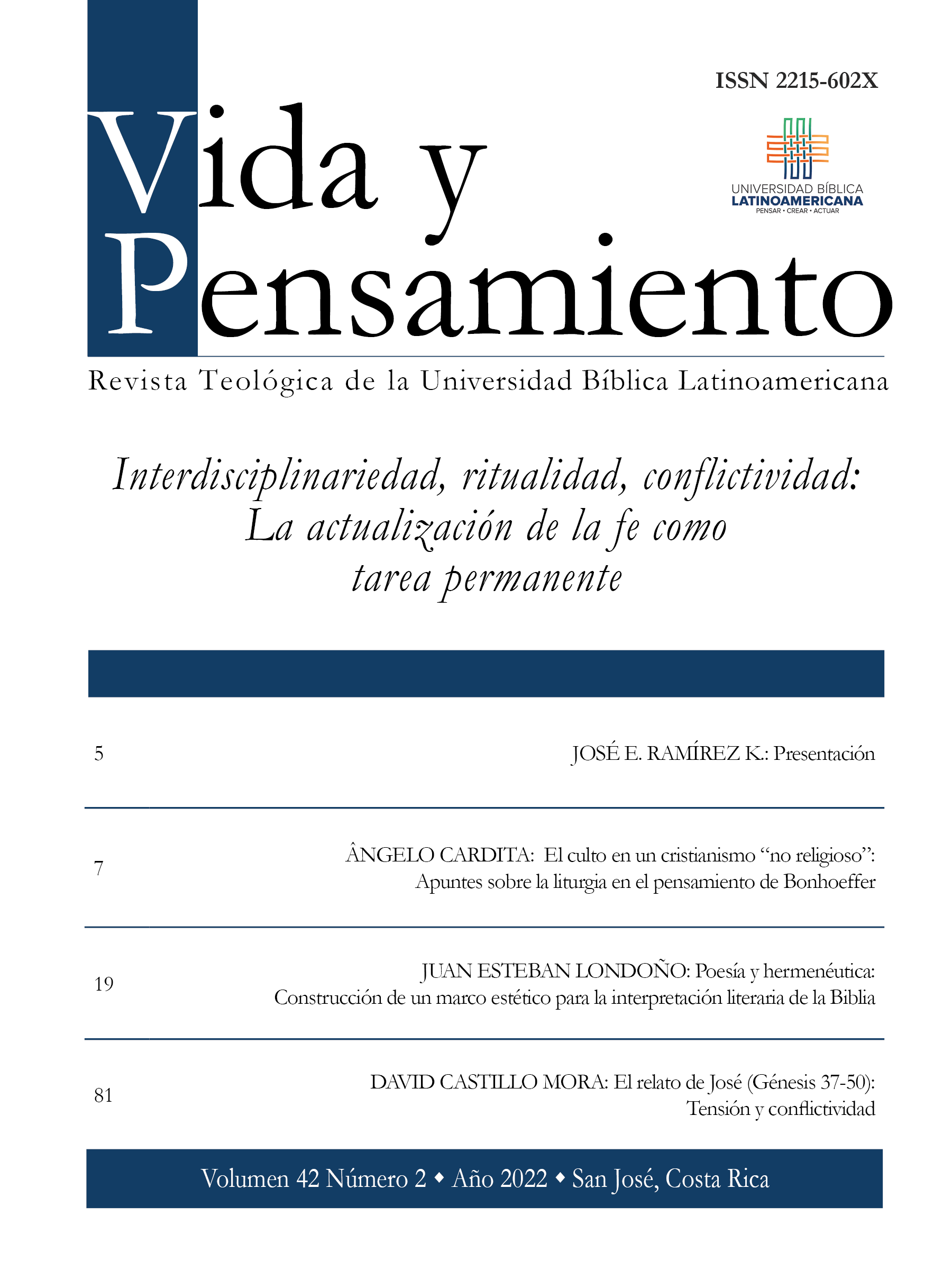El relato de José (Génesis 37-50): Tensión y conflictividad
Resumen
Se realiza una lectura crítica de Gen 37-50 desde la Hermenéutica de la Liberación. Por medio de una labor de deconstrucción, el autor pregunta por las dinámicas de dominación y resistencia en el texto y los posibles contextos históricos y sociales al cual pudieron haber respondido los relatos. Se privilegian los aspectos políticos, económicos y religiosos de las dinámicas de dominación y resistencia. A partir del concepto de revestimiento literario, se entienden los relatos como la expresión artística de conflictos sociales reales. Detrás del conflicto de José con sus hermanos estaría la legitimación de gobierno de un grupo dentro de Israel. Mediante un método ecléctico se privilegia el acercamiento literario sobre el histórico-crítico y socio-histórico, con el fin de aprovechar mejor las dinámicas literarias del texto y de promover realidades liberadoras. Analizando los sueños como un hilo narrativo que vertebra la novela, los relatos pueden ser leídos como una ironía crítica al discurso de dominación y legitimación. Génesis 47.13-26 puede ser visto como una voz disonante que permite ver la función de los textos en tanto que representantes de sistemas teológicos, políticos, económicos, sociales y culturales.
Descargas
Derechos de autor 2022 David Castillo Mora

Esta obra está bajo licencia internacional Creative Commons Reconocimiento-NoComercial-CompartirIgual 4.0.
Los personas autoras que publiquen en esta revista aceptan las siguientes condiciones:
- Las personas autoras conservan los derechos de autor y ceden a la revista el derecho de la primera publicación, con el trabajo registrado con la licencia de atribución de Creative Commons, que permite a terceros utilizar lo publicado siempre que mencionen la autoría del trabajo y a la primera publicación en esta revista.
-
Las personas autoras pueden realizar otros acuerdos contractuales independientes y adicionales para la distribución no exclusiva de la versión del artículo publicado en esta revista (p. ej., incluirlo en un repositorio institucional o publicarlo en un libro) siempre que indiquen claramente que el trabajo se publicó por primera vez en esta revista.

